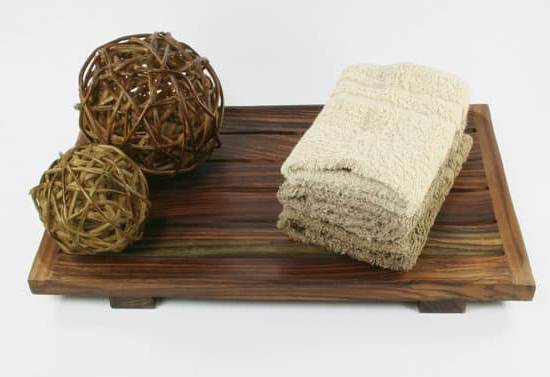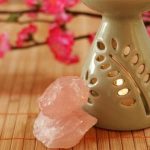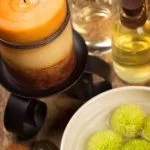Aromatherapy diffusers are devices that are commonly used for relaxation and promoting wellness. These devices work by dispersing essential oils into the air, creating a pleasant aroma that is believed to have various therapeutic effects. However, one intriguing question that has arisen is whether these aromatherapy diffusers can also repel insects. This article will delve into the topic of whether scientific studies support the idea of using aromatherapy diffusers as a method for insect repellent.
The use of essential oils in aromatherapy diffusers has become increasingly popular as a natural way to improve mood, reduce stress, and alleviate certain physical symptoms. These oils are derived from plants and possess various properties that contribute to their soothing and therapeutic effects. Additionally, there is also evidence to suggest that certain essential oils may have insect-repelling qualities.
While the anecdotal evidence of individuals claiming that aromatherapy diffusers have kept insects at bay is noteworthy, it is important to examine any existing scientific research on this topic. By critically analyzing past studies and exploring the potential insect-repellent properties of essential oils, we can gain a better understanding of the effectiveness of using aromatherapy diffusers for this purpose.
The Science Behind Aromatherapy Diffusers
Aromatherapy diffusers are devices that are used to disperse essential oils into the air, allowing individuals to enjoy the aromatic and therapeutic benefits of these oils. These diffusers are commonly used for relaxation and wellness purposes, as they are believed to have mood-lifting and stress-reducing properties. However, a lesser-known aspect of aromatherapy diffusers is their potential to repel insects.
The science behind aromatherapy diffusers lies in the properties of the essential oils that they disperse. Essential oils are derived from plants and contain various compounds that contribute to their characteristic scents and potential therapeutic effects. Some of these compounds have been found to have insect-repellent properties, making them a natural alternative to chemical insecticides.
Certain essential oils are believed to affect insects through their scent, interfering with the insects’ ability to locate sources of food or disrupting their mating behavior. For example, oils such as citronella, lavender, peppermint, eucalyptus, and lemongrass are reputed to repel mosquitoes, flies, ants, and other pests. The volatile nature of these oils allows them to easily evaporate into the air when diffused, creating an aromatic barrier that insects may find unpleasant or confusing.
In addition to their scent-based repellent qualities, some essential oils may also have direct insecticidal effects when they come into contact with insects. For example, research has shown that certain compounds in tea tree oil and neem oil can be toxic to certain species of insects upon contact. As a result, using these essential oils in aromatherapy diffusers may not only deter insects from entering a space but also prevent them from establishing infestations.
Anecdotal Evidence of Insect Repellent Qualities
Many individuals have claimed that using aromatherapy diffusers with certain essential oils has effectively repelled insects in their homes or outdoor spaces. These anecdotal accounts often praise the pleasant fragrance of the oils while also noting a significant decrease in insect presence.
For example, some people have reported using citronella, lavender, or peppermint essential oils in their diffusers and noticing fewer mosquitoes, flies, or ants in their surroundings. While these personal testimonials are not definitive scientific evidence, they do bring attention to the possibility of aromatherapy diffusers serving as natural insect repellents.
One commonly cited explanation for the insect-repelling properties of essential oils used in diffusers is their strong and distinct aroma. It is believed that certain scents are intolerable or overwhelming for insects, driving them away from an area.
Furthermore, some essential oils may contain compounds that interfere with an insect’s olfactory senses or disrupt their ability to locate food sources or breeding grounds. This could potentially explain why individuals have experienced success in deterring insects by simply using aromatherapy diffusers with specific essential oils.
While there is a lack of comprehensive scientific studies directly addressing whether aromatherapy diffusers can effectively repel insects, the abundance of anecdotal evidence suggests that there may be merit to this claim. As such, it is important to recognize the value of individual experiences and observations while also acknowledging the need for more rigorous research to validate these claims.
Scientific Studies on Aromatherapy Diffusers and Insect Repellent
The question of whether aromatherapy diffusers can repel insects has prompted several scientific studies to explore the potential insect-repellent qualities of these devices. While traditional insect repellents often contain harsh chemicals, there is a growing interest in natural alternatives like essential oils and aromatherapy diffusers. As a result, researchers have sought to investigate the effectiveness of diffusers in repelling insects through controlled experiments and observations.
Existing Research
One study published in the Journal of Vector Ecology examined the efficacy of essential oils, including citronella, lavender, and lemongrass, in repelling mosquitoes when used in an aromatherapy diffuser. The results indicated that these essential oils did show some promise in discouraging mosquito activity within a specific range of diffusion. However, the study also noted that certain factors such as outdoor exposure and air circulation could influence the effectiveness of diffusion as an insect repellent method.
Methodology and Findings
Another study conducted by researchers at a university laboratory investigated the impact of essential oil diffusion on the behavior of houseflies. The experiment involved exposing houseflies to different concentrations of essential oils emitted from a diffuser and observing their response. The findings suggested that certain essential oils were effective in deterring houseflies from landing on surfaces near the diffuser, providing evidence for the potential use of aromatherapy diffusion as an insect repellent strategy.
Promising Potential
While further research is needed to fully understand the scope and limitations of using aromatherapy diffusers for insect repellent purposes, these initial scientific studies suggest that there may be merit in exploring this alternative approach. By harnessing the natural properties of essential oils and utilizing them in well-designed diffusers, individuals may have an option for managing insect activity without relying solely on conventional chemical-based repellents.
Types of Essential Oils for Insect Repellent
When it comes to using aromatherapy diffusers as insect repellent, the specific essential oils utilized can make a significant difference in their effectiveness. Both anecdotal evidence and scientific studies have pointed to certain essential oils as being particularly beneficial for repelling insects. Here are some of the most commonly recommended types of essential oils for insect repellent, based on both sources of evidence:
- Citronella: Known for its distinctive lemon-like scent, citronella oil is widely used as a natural insect repellent. Scientific studies have shown that it can be effective at keeping mosquitoes at bay, making it a popular choice for use in aromatherapy diffusers.
- Peppermint: With its invigorating aroma, peppermint oil is not only refreshing for humans but also unsettling for insects. The strong scent acts as a deterrent for pests such as ants, spiders, and even mice.
- Lavender: Beyond its renowned relaxation properties, lavender oil also has insect-repelling qualities. This sweet-smelling oil is known to discourage mosquitoes and other insects while promoting a sense of calm.
- Eucalyptus: The distinct fragrance of eucalyptus oil serves as a powerful insect repellent. Its potent aroma can deter mosquitoes and flies effectively when dispersed through an aromatherapy diffuser.
When using these essential oils in aromatherapy diffusers for insect repellent purposes, it’s important to consider the quality and concentration of the oil being used. Diluting essential oils with water or carrier oils may be necessary to avoid overwhelming fragrances and potential sensitivities in sensitive individuals or pets.
Additionally, experimenting with different combinations of these essential oils may enhance their overall effectiveness at repelling insects. Some individuals have reported success with custom blends that mix multiple insect-repelling essential oils together, creating a more potent aromatic deterrent for pests indoors.
Tips for Using Aromatherapy Diffusers as Insect Repellent
Aromatherapy diffusers have gained popularity for their use in creating a relaxing and pleasant atmosphere, but can they also serve as insect repellents? While there is anecdotal evidence suggesting that certain essential oils used in diffusers may repel insects, the scientific study on this topic is limited. However, understanding the properties of essential oils and how they are believed to affect insects can provide insight into their potential effectiveness as repellents.
Essential oils such as citronella, lavender, eucalyptus, and peppermint are often cited as natural insect repellents. When used in aromatherapy diffusers, these oils are dispersed into the air, creating a fragrant environment while potentially warding off insects. According to anecdotal evidence, individuals have reported success in using diffusers with these essential oils to keep bugs at bay. Scientific studies are necessary to validate these claims and determine the most effective methods for using aromatherapy diffusers as insect repellents.
While scientific research on the insect-repelling properties of aromatherapy diffusers is lacking, some studies have examined the effectiveness of specific essential oils on insects. For example, a study published in the Journal of Vector Ecology found that citronella candles were effective at repelling mosquitoes for a short distance. While this does not directly relate to aromatherapy diffusers, it suggests that certain essential oils may indeed have insect-repelling qualities when dispersed into the air.
| Essential Oil | Insect Repellent Effect |
|---|---|
| Citronella | Repels mosquitoes for a short distance |
| Lavender | Repels moths and flies |
| Eucalyptus | Repels mosquitoes and ticks |
Potential Limitations and Considerations
When considering the use of aromatherapy diffusers as insect repellent, it is important to acknowledge potential limitations and considerations. While there is anecdotal evidence and some scientific studies suggesting that essential oils used in diffusers can repel insects, there are factors to keep in mind before relying solely on this method for insect control.
Effectiveness and Variability
One key consideration is the effectiveness and variability of using aromatherapy diffusers for insect repellent. Scientific studies have shown that certain essential oils, such as citronella, peppermint, and lemongrass, may have repellent properties against specific types of insects. However, the effectiveness of these essential oils in diffusers can vary depending on factors such as the concentration of the oil, the type of diffuser used, and individual differences in response to the scents.
Safety Concerns
Another important consideration when using aromatherapy diffusers as insect repellent relates to safety concerns. Essential oils can be potent substances that may cause allergic reactions or irritation in some individuals. It is crucial to use these oils with caution, especially around children, pregnant women, individuals with respiratory conditions, and pets.
Additionally, improper use of diffusers or accidental ingestion of essential oils can lead to adverse effects. Therefore, it is essential to follow safety guidelines and consult with a healthcare professional if there are any concerns about using essential oils for insect repellent.
Environmental Impact
Furthermore, it is important to consider the potential environmental impact of using aromatherapy diffusers as insect repellent. While some essential oils may repel insects effectively indoors, their impact on outdoor environments or natural ecosystems requires careful consideration.
Overuse or improper disposal of essential oils from diffusers could potentially contribute to environmental pollution or harm beneficial insects and wildlife. Therefore, it is advisable to assess the broader implications of using aromatherapy diffusers for insect control and seek environmentally responsible options when addressing pest issues.
Conclusion
In conclusion, the use of aromatherapy diffusers as insect repellents is an intriguing topic that has sparked both anecdotal evidence and scientific study. While essential oils have long been used for their aromatic and wellness-promoting properties, there are also indications that certain oils may have insect-repelling qualities. However, it is important to approach this topic with a critical eye and consider the limitations and considerations involved.
Scientific studies on the use of aromatherapy diffusers as insect repellents have provided mixed results. Some studies have shown promising evidence that specific essential oils can effectively repel insects when used in diffusers, while others have not found significant repellent effects. It is clear that more research is needed to fully understand the potential of aromatherapy diffusers in repelling insects.
For those interested in using aromatherapy diffusers as insect repellents, it is important to carefully choose the right essential oils and follow proper usage guidelines. Certain essential oils, such as citronella, peppermint, and lavender, have been suggested as effective insect repellents based on both anecdotal and scientific evidence. Additionally, understanding how to properly position and utilize diffusers to maximize their effectiveness in repelling insects is crucial for achieving desired results.
Overall, while there is still much to learn about the efficacy of aromatherapy diffusers in repelling insects, it is worth exploring this potential use further. Whether as a natural alternative to traditional insect repellents or simply as a pleasant addition to indoor environments, understanding the science behind aromatherapy diffusers and their potential insect-repelling properties can open up new avenues for wellness and pest management.
Further research and personal experimentation will continue to shed light on the capabilities of these devices in promoting a more enjoyable and bug-free environment.
Frequently Asked Questions
Does Essential Oil Diffuser Keep Bugs Away?
Essential oil diffusers are not proven to be effective in keeping bugs away. While some people believe that certain essential oils can repel insects, there is limited scientific evidence to support this claim.
Why Do Essential Oils Make Terrible Bug Repellents?
Essential oils may make terrible bug repellents because their effectiveness can vary greatly depending on the type of oil and the specific insect species. Some essential oils may only have a short-lived effect, while others may not repel bugs at all.
Does Frankincense Oil Repel Bugs?
Frankincense oil is often touted for its various benefits, including its potential to repel bugs. However, like many essential oils, the effectiveness of frankincense oil as a bug repellent is not well-established through scientific research. It may have some insect-repelling properties, but more studies are needed to confirm its efficacy for this purpose.

Are you looking for a natural way to improve your health and wellbeing?
If so, aromatherapy may be the answer for you.





